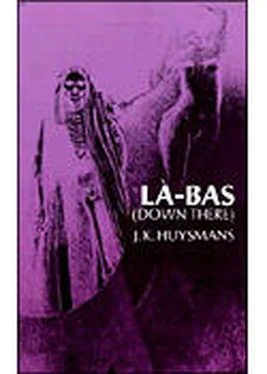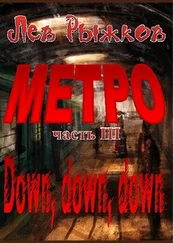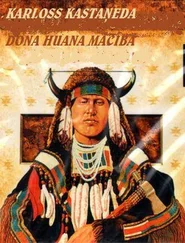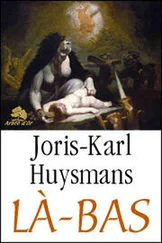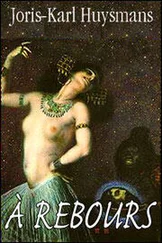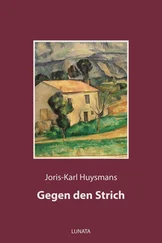Joris-Karl Huysmans - Down There (Là-Bas)
Здесь есть возможность читать онлайн «Joris-Karl Huysmans - Down There (Là-Bas)» весь текст электронной книги совершенно бесплатно (целиком полную версию без сокращений). В некоторых случаях можно слушать аудио, скачать через торрент в формате fb2 и присутствует краткое содержание. Жанр: Классическая проза, на английском языке. Описание произведения, (предисловие) а так же отзывы посетителей доступны на портале библиотеки ЛибКат.
- Название:Down There (Là-Bas)
- Автор:
- Жанр:
- Год:неизвестен
- ISBN:нет данных
- Рейтинг книги:3 / 5. Голосов: 1
-
Избранное:Добавить в избранное
- Отзывы:
-
Ваша оценка:
- 60
- 1
- 2
- 3
- 4
- 5
Down There (Là-Bas): краткое содержание, описание и аннотация
Предлагаем к чтению аннотацию, описание, краткое содержание или предисловие (зависит от того, что написал сам автор книги «Down There (Là-Bas)»). Если вы не нашли необходимую информацию о книге — напишите в комментариях, мы постараемся отыскать её.
Down There (Là-Bas) — читать онлайн бесплатно полную книгу (весь текст) целиком
Ниже представлен текст книги, разбитый по страницам. Система сохранения места последней прочитанной страницы, позволяет с удобством читать онлайн бесплатно книгу «Down There (Là-Bas)», без необходимости каждый раз заново искать на чём Вы остановились. Поставьте закладку, и сможете в любой момент перейти на страницу, на которой закончили чтение.
Интервал:
Закладка:
He began to think that Des Hermies was right. In the present disorganized state of letters there was but one tendency which seemed to promise better things. The unsatisfied need for the supernatural was driving people, in default of something loftier, to spiritism and the occult.
Now his thoughts carried him away from his dissatisfaction with literature to the satisfaction he had found in another art, in painting. His ideal was completely realized by the Primitives. These men, in Italy, Germany, and especially in Flanders, had manifested the amplitude and purity of vision which are the property of saintliness. In authentic and patiently accurate settings they pictured beings whose postures were caught from life itself, and the illusion was compelling and sure. From these heads, common enough, many of them, and these physiognomies, often ugly but powerfully evocative, emanated celestial joy or acute anguish, spiritual calm or turmoil. The effect was of matter transformed, by being distended or compressed, to afford an escape from the senses into remote infinity.
Durtal's introduction to this naturalism had come as a revelation the year before, although he had not then been so weary as now of fin de siècle silliness. In Germany, before a Crucifixion by Matthæus Grünewald, he had found what he was seeking.
He shuddered in his armchair and closed his eyes as if in pain. With extraordinary lucidity he revisualized the picture, and the cry of admiration wrung from him when he had entered the little room of the Cassel museum was reechoing in his mind as here, in his study, the Christ rose before him, formidable, on a rude cross of barky wood, the arm an untrimmed branch bending like a bow under the weight of the body.
This branch seemed about to spring back and mercifully hurl afar from our cruel, sinful world the suffering flesh held to earth by the enormous spike piercing the feet. Dislocated, almost ripped out of their sockets, the arms of the Christ seemed trammelled by the knotty cords of the straining muscles. The laboured tendons of the armpits seemed ready to snap. The fingers, wide apart, were contorted in an arrested gesture in which were supplication and reproach but also benediction. The trembling thighs were greasy with sweat. The ribs were like staves, or like the bars of a cage, the flesh swollen, blue, mottled with flea-bites, specked as with pin-pricks by spines broken off from the rods of the scourging and now festering beneath the skin where they had penetrated.
Purulence was at hand. The fluvial wound in the side dripped thickly, inundating the thigh with blood that was like congealing mulberry juice. Milky pus, which yet was somewhat reddish, something like the colour of grey Moselle, oozed from the chest and ran down over the abdomen and the loin cloth. The knees had been forced together and the rotulæ touched, but the lower legs were held wide apart, though the feet were placed one on top of the other. These, beginning to putrefy, were turning green beneath a river of blood. Spongy and blistered, they were horrible, the flesh tumefied, swollen over the head of the spike, and the gripping toes, with the horny blue nails, contradicted the imploring gesture of the hands, turning that benediction into a curse; and as the hands pointed heavenward, so the feet seemed to cling to earth, to that ochre ground, ferruginous like the purple soil of Thuringia.
Above this eruptive cadaver, the head, tumultuous, enormous, encircled by a disordered crown of thorns, hung down lifeless. One lacklustre eye half opened as a shudder of terror or of sorrow traversed the expiring figure. The face was furrowed, the brow seamed, the cheeks blanched; all the drooping features wept, while the mouth, unnerved, its under jaw racked by tetanic contractions, laughed atrociously.
The torture had been terrific, and the agony had frightened the mocking executioners into flight.
Against a dark blue night-sky the cross seemed to bow down, almost to touch the ground with its tip, while two figures, one on each side, kept watch over the Christ. One was the Virgin, wearing a hood the colour of mucous blood over a robe of wan blue. Her face was pale and swollen with weeping, and she stood rigid, as one who buries his fingernails deep into his palms and sobs. The other figure was that of Saint John, like a gipsy or sunburnt Swabian peasant, very tall, his beard matted and tangled, his robe of a scarlet stuff cut in wide strips like slabs of bark. His mantle was a chamois yellow; the lining, caught up at the sleeves, showed a feverish yellow as of unripe lemons. Spent with weeping, but possessed of more endurance than Mary, who was yet erect but broken and exhausted, he had joined his hands and in an access of outraged loyalty had drawn himself up before the corpse, which he contemplated with his red and smoky eyes while he choked back the cry which threatened to rend his quivering throat.
Ah, this coarse, tear-compelling Calvary was at the opposite pole from those debonair Golgothas adopted by the Church ever since the Renaissance. This lockjaw Christ was not the Christ of the rich, the Adonis of Galilee, the exquisite dandy, the handsome youth with the curly brown tresses, divided beard, and insipid doll-like features, whom the faithful have adored for four centuries. This was the Christ of Justin, Basil, Cyril, Tertullian, the Christ of the apostolic church, the vulgar Christ, ugly with the assumption of the whole burden of our sins and clothed, through humility, in the most abject of forms.
It was the Christ of the poor, the Christ incarnate in the image of the most miserable of us He came to save; the Christ of the afflicted, of the beggar, of all those on whose indigence and helplessness the greed of their brother battens; the human Christ, frail of flesh, abandoned by the Father until such time as no further torture was possible; the Christ with no recourse but His Mother, to Whom-then powerless to aid Him-He had, like every man in torment, cried out with an infant's cry.
In an unsparing humility, doubtless, He had willed to suffer the Passion with all the suffering permitted to the human senses, and, obeying an incomprehensible ordination, He, in the time of the scourging and of the blows and of the insults spat in His face, had put off divinity, nor had He resumed it when, after these preliminary mockeries, He entered upon the unspeakable torment of the unceasing agony. Thus, dying like a thief, like a dog, basely, vilely, physically, He had sunk himself to the deepest depth of fallen humanity and had not spared Himself the last ignominy of putrefaction.
Never before had naturalism transfigured itself by such a conception and execution. Never before had a painter so charnally envisaged divinity nor so brutally dipped his brush into the wounds and running sores and bleeding nail holes of the Saviour. Grünewald had passed all measure. He was the most uncompromising of realists, but his morgue Redeemer, his sewer Deity, let the observer know that realism could be truly transcendent. A divine light played about that ulcerated head, a superhuman expression illuminated the fermenting skin of the epileptic features. This crucified corpse was a very God, and, without aureole, without nimbus, with none of the stock accoutrements except the blood-sprinkled crown of thorns, Jesus appeared in His celestial super-essence, between the stunned, grief-torn Virgin and a Saint John whose calcined eyes were beyond the shedding of tears.
These faces, by nature vulgar, were resplendent, transfigured with the expression of the sublime grief of those souls whose plaint is not heard. Thief, pauper, and peasant had vanished and given place to supraterrestial creatures in the presence of their God.
Grünewald was the most uncompromising of idealists. Never had artist known such magnificent exaltation, none had ever so resolutely bounded from the summit of spiritual altitude to the rapt orb of heaven. He had gone to the two extremes. From the rankest weeds of the pit he had extracted the finest essence of charity, the mordant liquor of tears. In this canvas was revealed the masterpiece of an art obeying the unopposable urge to render the tangible and the invisible, to make manifest the crying impurity of the flesh and to make sublime the infinite distress of the soul.
Читать дальшеИнтервал:
Закладка:
Похожие книги на «Down There (Là-Bas)»
Представляем Вашему вниманию похожие книги на «Down There (Là-Bas)» списком для выбора. Мы отобрали схожую по названию и смыслу литературу в надежде предоставить читателям больше вариантов отыскать новые, интересные, ещё непрочитанные произведения.
Обсуждение, отзывы о книге «Down There (Là-Bas)» и просто собственные мнения читателей. Оставьте ваши комментарии, напишите, что Вы думаете о произведении, его смысле или главных героях. Укажите что конкретно понравилось, а что нет, и почему Вы так считаете.
